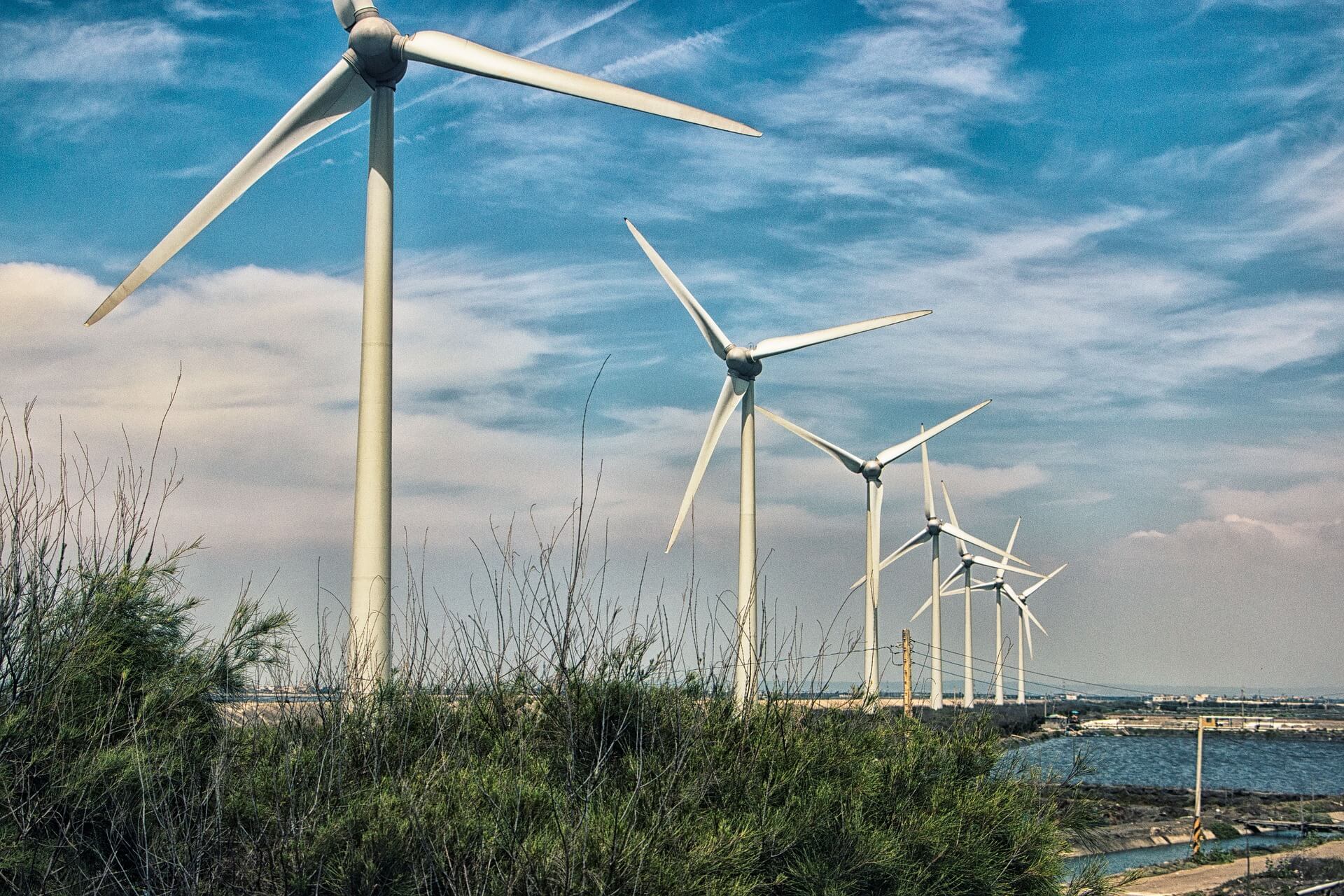Energy
The production of primary energy stands for around 75% of the world’s emission of greenhouse gases and energy demand is increasing. Our green research network “Energy” aims at addressing the issue of development, implementation and management of clean energy technologies and solutions in a manner, which is socially and environmentally sustainable in a long-term perspective.

Population growth and higher standards of living are driving an increasing demand for energy all over the world. Our interdisciplinary research network “Energy” combines technological and digital expertise with the study of regulatory, economic and social factors, which guide the creation and functioning of clean energy solutions.
The network seeks to support the clean energy transition by expanding knowledge, inspiring innovation and contributing to the public debate and policy development. It focuses on clean energy technologies, such as photovoltaic and wind-turbine based electricity production, electrolysis based energy transformation (Power-to-X) and biomaterials-based fuels. The Energy network approaches these technologies and their functioning in a comprehensive, cross-disciplinary manner through the study of the following, interconnected areas:
STEM: Innovation. The production of primary energy stands for around 75% of the world’s emission of greenhouse gases. The energy demand is increasing, driven by the growth in population and standard of living. There are technologies for harvesting energy from renewable sources such as sun, wind, water and geothermal and converting it into electricity. However, this supply is decentralized and intermittent. A huge part of our energy demand remains reliant on fuels rather than electricity, which is required independently from the supply. Many of the much needed, alternative technologies are still not developed, or they are not efficient or sufficiently scalable to be applied on a large scale. Thus, there is a need for developing technologies that can fulfil the energy demand in a renewable and sustainable manner, which our Energy research network seeks to contribute to.
A huge part of our energy demand remains reliant on fuels rather than electricity. Many of the much needed, alternative technologies are still not developed, or they are not efficient or sufficiently scalable to be applied on a large scale. Thus, there is a need for developing technologies that can fulfil the energy demand in a renewable and sustainable manner.
Law, Economy, Society: Implementation. The network acknowledges the fact that technological developments often precede a systemic social change, and their implementation can be effectively supported or obstructed by legal and economic factors, as well as by social acceptance or resistance. At the legal level, our Energy research network captures the role of international (e.g. the UN IPCC), regional (EU) and national regulatory initiatives and frameworks in facilitating effective, but also safe, fair and inclusive green energy transition. The network also examines the role of economic factors in incentivizing investments in clean energy solutions and in making them aligned with developmental objectives. Furthermore, the network studies social reactions to implementation of technological innovations in the energy sector (such as patterns of acceptance and resistance to deployment of wind farms) and recognizes their importance for establishing well-informed policies for the long-term clean energy transition.
Digital Technologies: Management and Control. Clean energy technologies are rapidly evolving to be competitive with conventional fossil and nuclear-based energy forms. They are, however, decentralized, long-term unpredictable, and generally complex to control. Furthermore, greenwashing of energy provenance is an inherent threat to real (not just reported) clean energy deployment. The energy network examines mathematical frameworks and computer systems for greenwashing-proof tracking and tracing of the production, transformation and use of energy to facilitate both ex-post reporting and ex-ante optimization of environmental impact, in particular carbon emissions, across entire supply networks. This is driven by regulatory requirements such as the EU Corporate Sustainability Reporting Directive (CSRD), and it is intended to provide input to legal regulation and its social acceptance by exploring and demonstrating how enterprise systems can be used to digitally greenwash energy sources and how advanced digital technologies can be developed to eliminate such greenwashing.
Researchers in the network
| Joanna Lam | Centre for Legal Studies in Welfare and Market | Faculty of Law |
| Fritz Henglein | Department of Computer Science | Faculty of Science |
| Jan Rossmeisl | Department of Chemistry | Faculty of Science |
| Rasmus Kehlet Skjødt Berg | Department of Economics | Faculty of Social Sciences |
| Oliver Bugge Hunt | Department of Food and Resource Economics | Faculty of Science |
| Søren Bertelsen Scott | Department of Chemistry | Faculty of Science |
